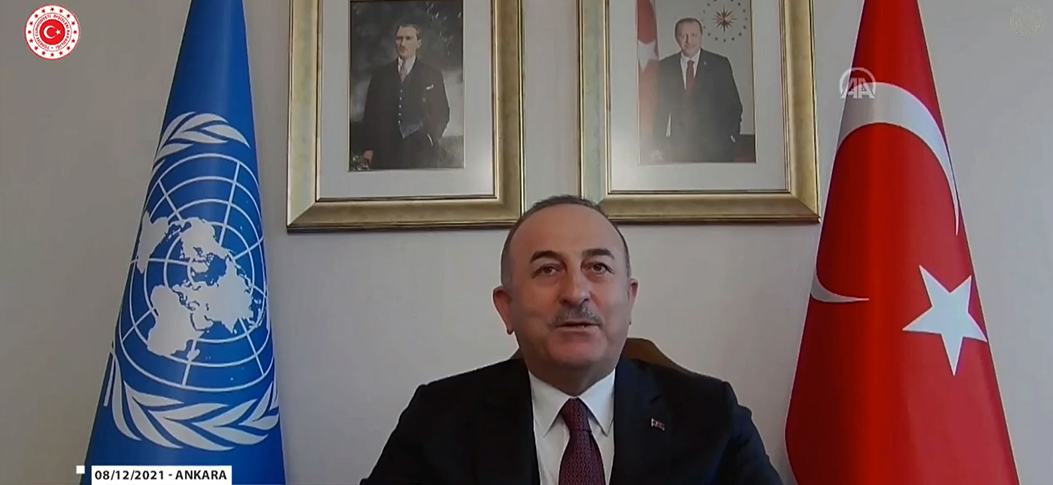"Greek attacks on Turkish Cypriots in 1963 led to deployment of UN peacekeeping force on island"

Foreign Minister Mevlüt Çavuşoğlu addressed to UN Peacekeeping Ministerial meeting held in the South Korean capital Seoul, via video link.
“Let me underline the need for the UN to seek the consent of the Turkish Cypriot authorities for the UN peacekeeping force on the island,” known as UNFICYP, said Cavusoglu.
“Furthermore, it should be recalled that the only occupation on the island took place in 1963, which in fact led to the deployment of UN peace force in 1964,” he added, referring to ethnic violence by ethnic Greeks on the island that forced Turkish Cypriots to withdraw into enclaves for their safety.
This July, Turkey said that the UN Security Council’s extension of the mandate of the UN Peacekeeping Force on Cyprus has "no meaning or value for us” as it “ignores once again the will of the Turkish Cypriot people.”
"It is against the UN’s own rules and principles that the (Turkish Cypriot) authorities’ consent was not obtained for the extension of the mandate,” said a Foreign Ministry statement, adding that Turkey expects “the UN to rectify this situation … as soon as possible.”
Cyprus has been mired in a decades-long dispute between Greek and Turkish Cypriots, despite a series of diplomatic efforts by the UN to achieve a comprehensive settlement.
Ethnic attacks starting in the early 1960s forced Turkish Cypriots to withdraw into enclaves for their safety.
In 1974, a Greek Cypriot coup aimed at Greece’s annexation led to Turkey’s military intervention as a guarantor power to protect Turkish Cypriots from persecution and violence. As a result, the Turkish Republic of Northern Cyprus (TRNC) was founded in 1983.
Performance and accountability
Cavusoglu also said joint efforts to enhance the capabilities of peacekeeping operations should continue, adding: “Performance and accountability are two key areas that we should work on to make these operations more effective.”
“We need to encourage accountability with a victim-centered approach,” he added.
Cavusoglu said that there is a long way to go, despite the significant progress that has been made reforming the UN peacekeeping architecture since the launch of the Action for Peacekeeping (A4P) in 2018.
“The international community has yet to implement the Report of the Panel on United Nations Peace Operations, also known as the Brahimi Report,” he said.
Turkey’s contributions
Cavusoglu said that Turkey has contributed $2.9 million to the UN Peacebuilding Fund and that this support will continue.
Turkey will continue to contribute “to peacekeeping operations around the globe, from Africa to the Middle East and Balkans,” Cavusoglu said.
Cavusoglu also reiterated Turkey’s commitments; “Five staff officers to be deployed on demand to the headquarters of the MINUSMA (UN Multidimensional Integrated Stabilization Mission in Mali, Africa); one transport aircraft to be deployed on demand, either at MINUSMA or MINUSCA (UN Multidimensional Integrated Stabilization Mission in the Central African Republic); training for UN personnel at Centers of Excellence in Turkey, such as the Partnership for Peace Center; and maritime security training for UN personnel.”

